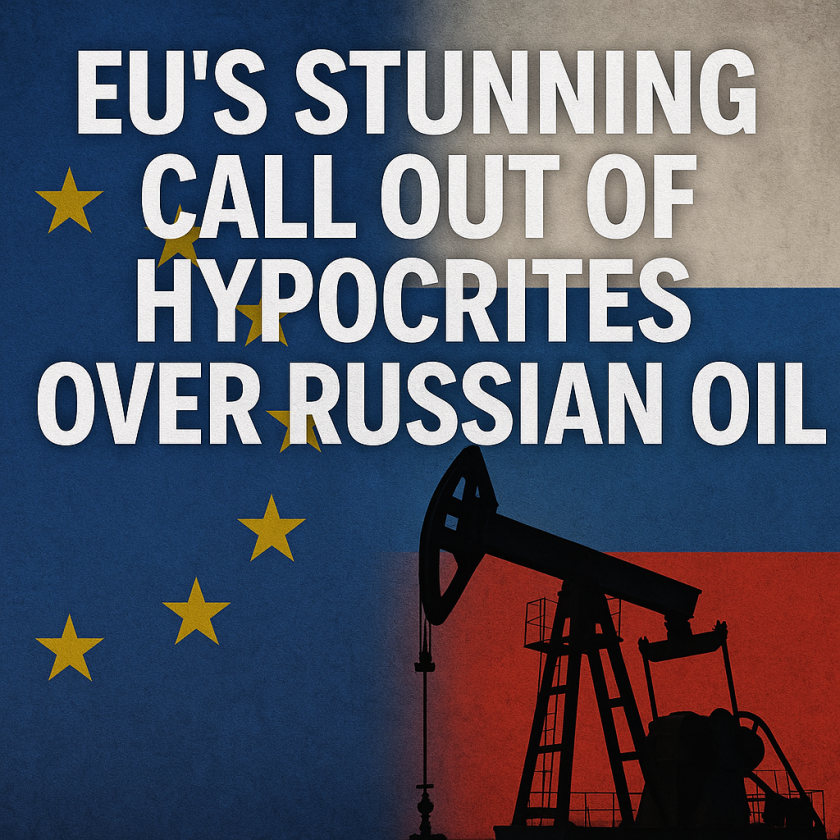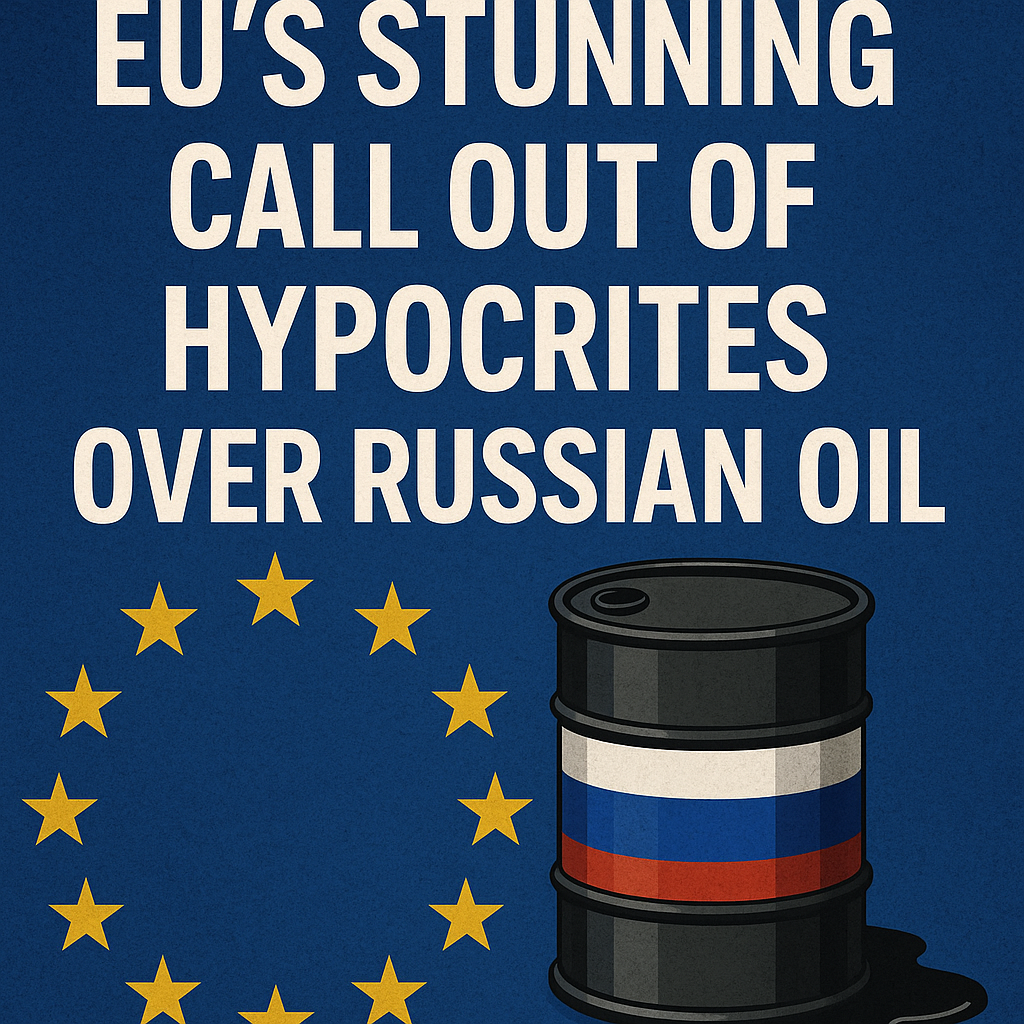EU’s Stunning Call Out of Hypocrites Over Russian Oil
The EU’s Stunning Call Out of Hypocrites Over Russian Oil
The EU’s stunning call out of hypocrites over Russian oil has stirred significant discourse lately. This complex issue navigates not just the political landscape but also underscores deeper economic and ethical implications regarding the West’s relationship with Russia.
The Heart of the Debate: Economic Dependence vs. Ethical Stances

In light of ongoing sanctions and the conflict in Ukraine, the EU’s commitment to reducing reliance on Russian oil has come under scrutiny. Hungary’s recent remarks highlight a perceived inconsistency in the EU’s approach. According to reports, Budapest officials labeled their colleagues as “hypocrites” for simultaneously criticizing Russia while accepting financial benefits from Russian oil imports. This perspective emphasizes a critical contradiction within the collective policies of EU member states.
Perspectives on the Hypocrisy Claim
Diverse viewpoints flood in from various stakeholders within and outside the EU. Critics of Hungary’s stance argue that the country, known for its close ties with Russia, is uniquely positioned to critique the EU’s unified front. Supporters, however, claim that inconsistencies in energy policy are noticeable and warrant acknowledgment.
Key points include:
– Economic Necessity: Many EU nations, despite ideological opposition to Russia’s actions, still require Russian oil for energy security. Countries like Hungary and Slovakia have emphasized their reliance on these imports as a matter of national security and economic stability.
– Collective Accountability: Member states face dilemmas when it comes to energy imports. Some nations argue for a unified and ethical alignment against Russian oil; others question how feasible this is in light of domestic energy needs.
While the EU acknowledges the challenge of transitioning away from Russian oil, Hungary’s critique acts as a mirror reflecting the contradictions within the bloc—a call to reassess the moral implications of energy dependence.
Navigating the Energy Trilemma: Security, Economy, and Ethics
The situation surrounding Russian oil imports presents an intricate trilemma involving security, economic stability, and ethical imperatives. The EU has committed to reducing dependency on Russian energy, but doing so effectively requires careful planning and international cooperation.
Security and Economic Stability
For many EU nations, energy security remains paramount. Maria van der Hoeven, former Executive Director of the International Energy Agency, pointed out that successful transitions often hinge on investment in alternative energy sources. The call for diversification is echoed by policymakers across Europe, pushing for sustainable energy solutions while simultaneously grappling with immediate energy demands.
Investments Necessary for Transition:
– Renewable energy projects
– Energy efficiency enhancements
– Infrastructure updates
This pursuit for alternative energies must be accelerated to mitigate the impact of reliance on Russian oil, particularly as geopolitical tensions escalate.
Ethical Concerns and Detachment
Ethical considerations around energy sourcing also come to the forefront. Critics argue that by importing Russian oil, EU countries might inadvertently be funding activities contradicting their proclaimed values regarding the sovereignty of nations.
– Inconsistency in Policy: It raises questions about what it truly means for a bloc to stand united against aggression when some members continue to support the source of that aggression for economic reasons.
– Public Sentiment: Citizens are increasingly scrutinizing their governments’ foreign policies and energy decisions. There appears to be a growing demand for a more principled stance, wherein energy sourcing aligns with ethical considerations.
Conclusion: A Call for Cohesion in Crisis
The EU’s navigation of Russian oil imports highlights a pivotal moment where economic necessity clashes with ethical obligations. Hungary’s remarks have brought to light an ongoing struggle that is multifaceted and deeply intertwined with global politics and energy dependency.
The call out of “hypocrites” serves as a stark reminder of the urgent need for cohesion within the EU as it faces both internal and external pressures. As member states grapple with their energy policies, achieving a balance between economic stability, national security, and ethical integrity will prove to be a challenging but necessary endeavor for the future of the Union.
In the pursuit of a unified front, the EU must acknowledge these complexities and work collectively towards addressing them, fostering a dialogue that embraces both immediate and long-term needs.






































